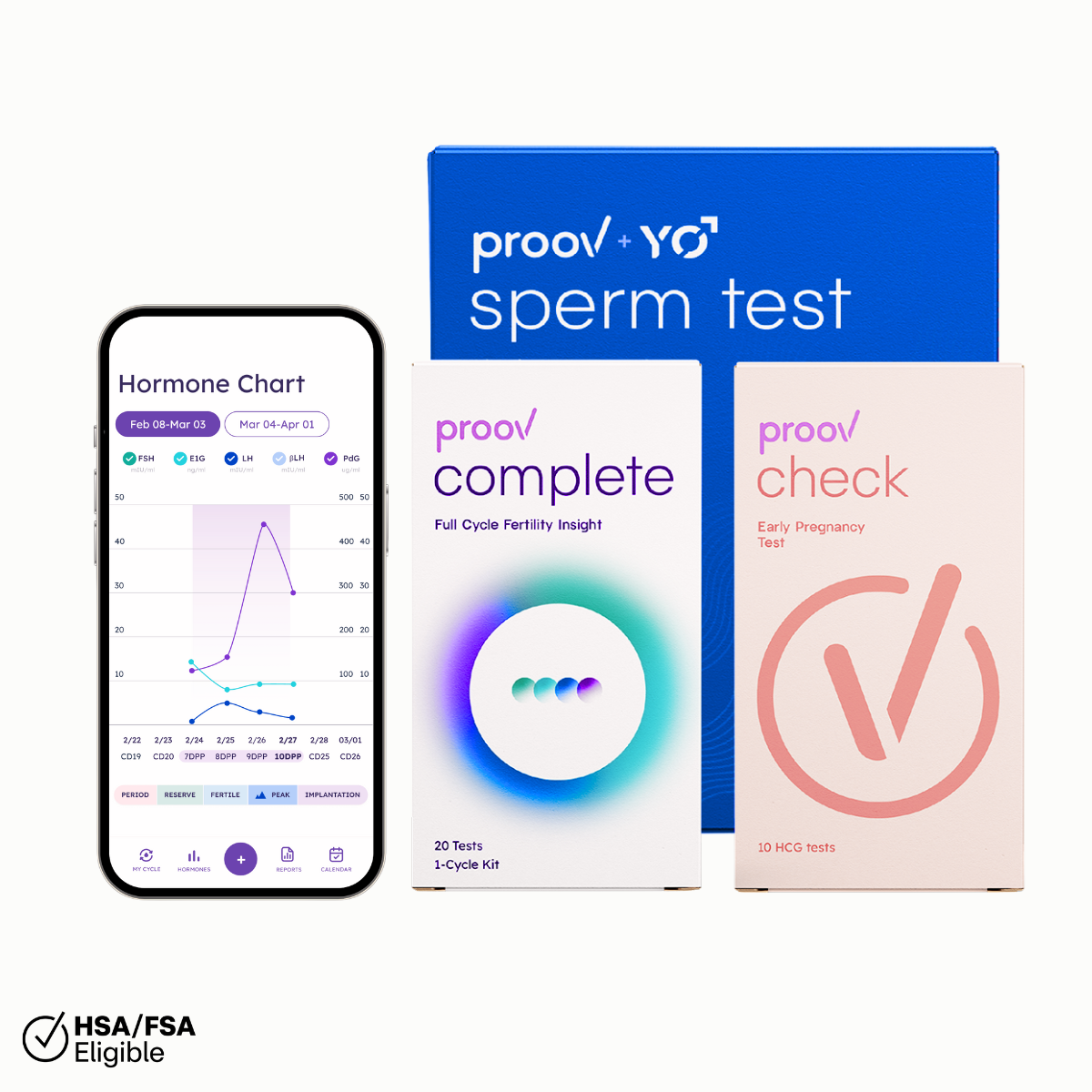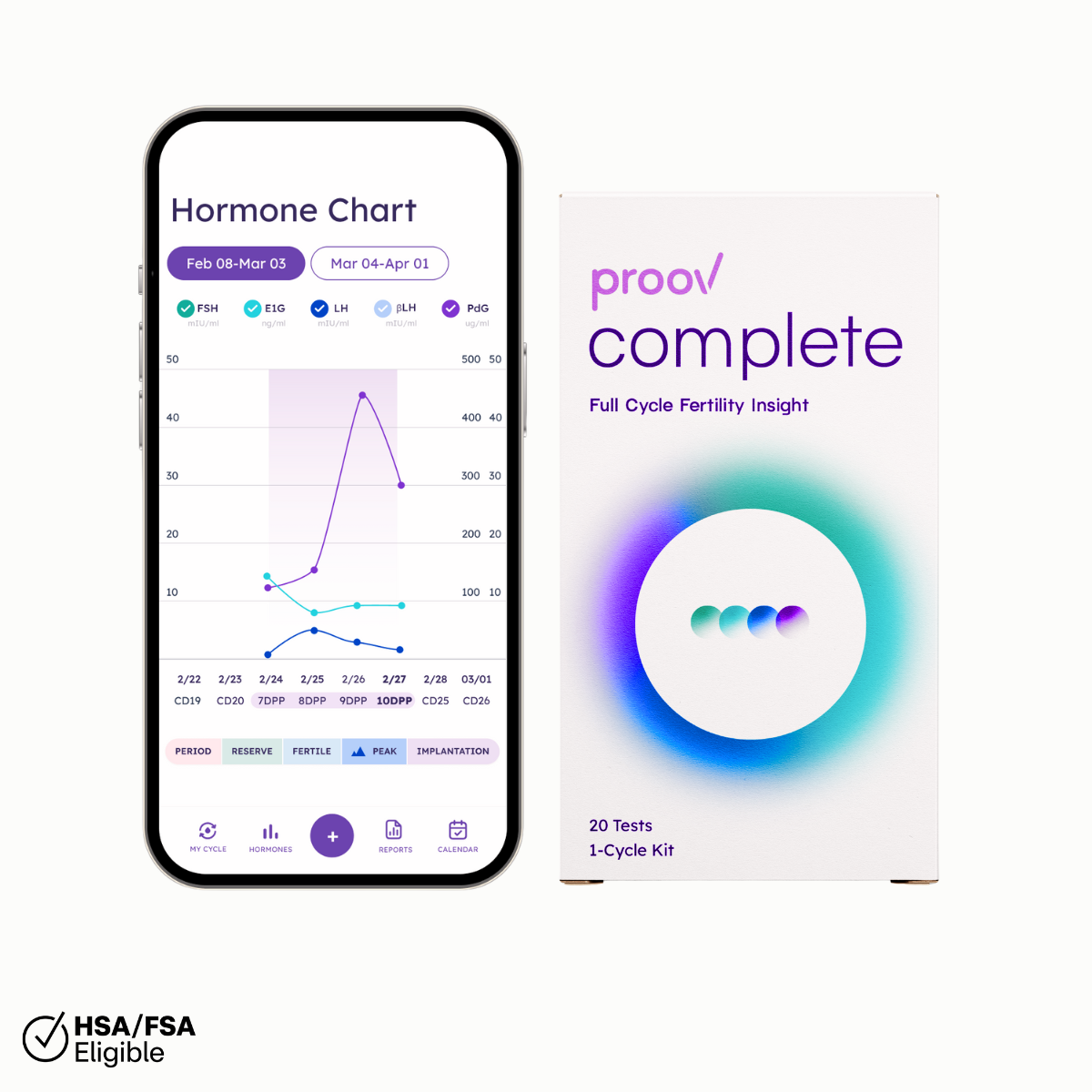Written by: Dr. Amy Beckley, PhD, Founder and Inventor of the Proov test — the first and only FDA-cleared test to check for successful ovulation at home.
Written on: 6/1/22

Understanding how long it takes to get pregnant after sex can help you know when to test for pregnancy.
If you are trying to conceive, you have likely experienced the (sometimes agonizing) wait between trying for a baby and taking a pregnancy test. It can feel like forever!
It can also be confusing since some pregnancy tests can be used earlier than others, so it’s hard to know exactly when you should be testing for pregnancy. Understanding how long it takes to get pregnant after sex is a great place to start.
Let’s dive in!
How long does it take to get pregnant after sex?
It’s typically recommended that you don’t test for pregnancy until you’ve missed a period. You’ll usually know if your period is missed about 2 weeks after getting a positive ovulation test and having sex.
That said, if you don't want to wait to take a pregnancy test 2 weeks after sex, some pregnancy tests can detect pregnancy even earlier. Understanding how long it takes to get pregnant after sex can help know when you could start testing (although we always recommend following the instructions included with your specific pregnancy test kit).
After sex, sperm and egg often don’t meet immediately. In fact, it can take up to 6 days for egg and sperm to actually form an embryo.
After sperm and egg meet (this is called the moment of conception), the newly formed embryo starts to make its way through the fallopian tube and down into the uterus. This can also take a few days, sometimes 3-4.
Once the embryo reaches the uterus, it’s time for it to find a comfortable spot where it will spend the next 9 months. This is called implantation and it’s when the embryo attaches itself to mama.
Implantation most commonly occurs on days 7-10 past a positive ovulation test. After the embryo implants into the uterus, that’s when it starts producing hCG (human Chorionic Gonadotropin).
The presence of hCG in your bloodstream or urine is what confirms pregnancy. That’s the hormone that pregnancy tests measure.
Technically, an early pregnancy test could detect hCG in urine up to 6 days before a missed period, depending on what day the embryo implants on. If it implants earlier, you may get a positive pregnancy test earlier. But if the embryo implants later, you may not get a positive pregnancy test until after a missed period.
Getting a positive pregnancy test 6 days before a missed period means that you would get a positive pregnancy test as early as 8 or 9 days after an ovulation test or after having sex.
Once you get that positive pregnancy test, we always recommend following up with your doctor to confirm pregnancy and for next steps.

Once you get a positive pregnancy test, we always recommend following up with your doctor to confirm pregnancy and for next steps.
How do I know when I can take a pregnancy test?
Again, we always recommend following the instructions included with your specific pregnancy test. If you're wondering when to take pregnancy test after sex, you’ll want to try and wait until a missed period to take a pregnancy test.
However, we know how tempting it can be to test earlier! And of course, just because you should wait doesn’t mean that you have to.
If you have an early pregnancy test that can detect pregnancy up to 6 days before a missed period, you may be wondering when exactly you can actually start testing — it’s a little confusing!
If you know when your next period should come, you can simply count back 6 days. So if your period is supposed to come on June 15th, you can start testing for pregnancy on June 9th.
If you don’t know when your next period is supposed to come, you can count out from a positive ovulation test. Implantation occurs about 7 to 10 days after a positive ovulation test.
You could get a positive early pregnancy test 8 days after sex or 9 days after a positive ovulation test. Once you get a positive test result, you should always follow up with your doctor to confirm pregnancy and discuss next steps.
Is there anything else I can do to increase my chances of getting pregnant?
In fact there is! Implantation can only occur if the uterus is prepared and ready to receive that embryo.
Progesterone is the hormone that is released during the implantation window (days 7-10 after a positive ovulation test) to make the uterus “sticky” enough so that an embryo can implant. Elevated progesterone levels during the implantation window can increase the chance of pregnancy.
While you cannot test for progesterone directly in urine, you can test for PdG — the marker of progesterone found in urine — with Proov Confirm. Want ovulation tests and PdG tests in the same kit? Try Proov Predict & Confirm!
Understanding how long it takes to get pregnant after sex can help you better use the tools on your fertility journey!














